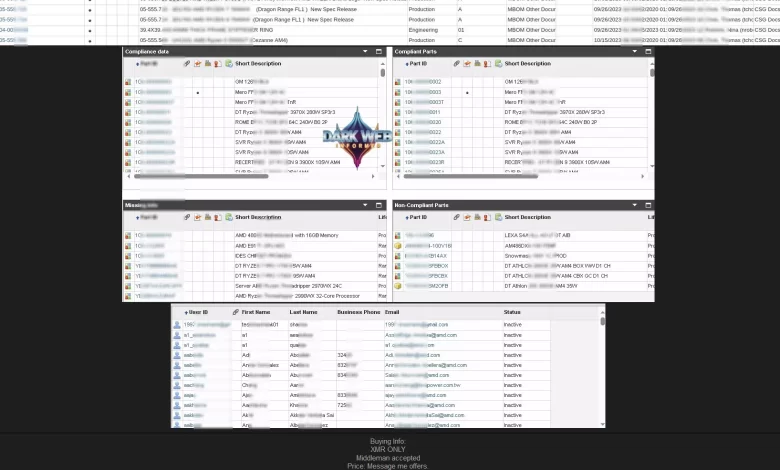AMD Investigates Cybersecurity Breach

Advanced Micro Devices (AMD) announced that it is investigating a potential cybersecurity breach following claims by a group identified as “IntelBroker.” The group alleges that it has accessed and stolen AMD’s sensitive data, including information on future products, customer databases, and financial records. IntelBroker, known for previous breaches involving major organizations such as HSBC, Barclays, T-Mobile, and others, has allegedly obtained two primary categories of data from AMD: intellectual property (IP) and business information. The stolen IP reportedly includes files related to device firmware, ROMs, source code, IP files, future product plans, and technical specifications. The business information compromised allegedly comprises employee databases, customer databases, financial information, user IDs, job designations, employment statuses, and business phone numbers.
Unlike typical ransomware attacks where hackers demand a ransom to prevent the public release of the data, IntelBroker has reportedly begun selling the stolen information to interested parties, accepting cryptocurrency payments through an intermediary. This shift in strategy highlights a growing trend among cybercriminals to monetize stolen data directly rather than relying on ransom payments.
AMD’s investigation aims to determine the scope and significance of the breach, as well as the potential exposure of sensitive information. The company emphasizes its commitment to working with law enforcement and cybersecurity experts to address the situation and mitigate any potential damage. The incident underscores the increasing threat of cyberattacks on major corporations and the need for robust cybersecurity measures to protect sensitive data.
The potential impact of this breach extends beyond AMD, as it may affect customers, partners, and employees whose information could be compromised. The stolen data could be used for various malicious purposes, including identity theft, financial fraud, and competitive espionage.
Sources: Reuters, HackRead, DarkWebInformer (Twitter)



